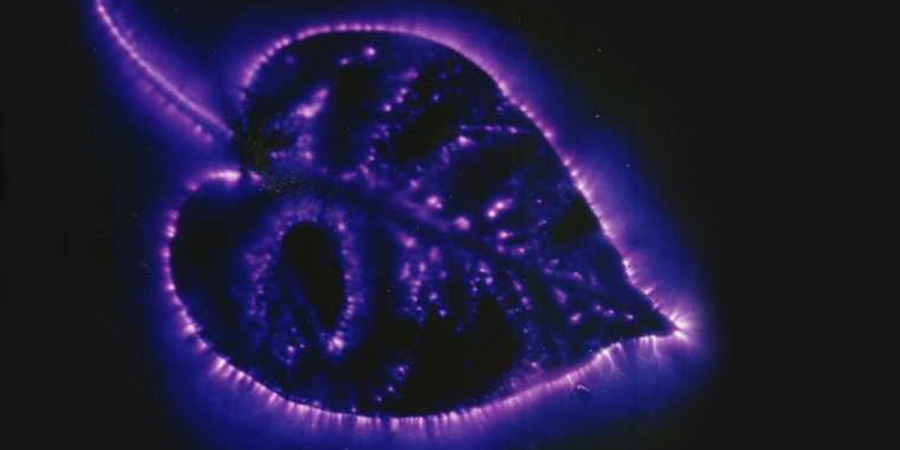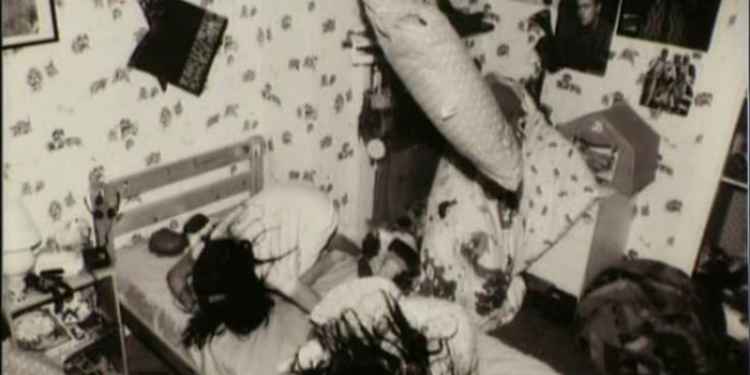
Photo: Roman Kogomachenko

Photo: Roman Kogomachenko
Alien abductions, sometimes referred to simply as abductions, involve people claiming to have been taken against their will by extraterrestrial beings. These incidents often include reports of being subjected to various experiments or examinations. Alien abductions are an area of research within the broader field of ufology, which is the study of unidentified flying objects (UFOs) and related phenomena.
Those who claim to have been abducted are referred to as "abductees" and sometimes experience psychological trauma, including nightmares, flashbacks, and feelings of anxiety. They often recount similar factors in their reports of their experiences, such as losing a period of time with no memory of what happened during that time. Some claim to have physical marks or scars, which they attribute to medical procedures performed by the extraterrestrials.
The term first gained popularity in the 1960s, mostly due to high-profile cases like that of Betty and Barney Hill, an American couple who claimed to have been abducted by aliens in 1961. Their detailed account, which included descriptions of medical examinations by humanoid beings, became widely known through books and television.
As interest in UFOs and extraterrestrial life has grown, the amount of media and press coverage they have gained has increased, as abduction cases continued to make headlines into the 1970s and 1980s. Their depiction in popular culture also became more frequent. This interest and coverage often led to more reports of abductions, bringing the concept of alien abduction into the public consciousness and providing a template for subsequent reports.
Films, television shows, and books have had a massive impact on shaping public expectations of alien abductions. The 1977 sci-fi classic 'Close Encounters Of The Third Kind' and the 1993 TV series 'The X-Files' both portrayed abductions in ways that resonated with many people. These depictions often include elements like bright lights, spacecraft, and extraterrestrial beings performing experiments, which are then mirrored in real-life reports.
While it's clear that popular culture has a significant impact on the number of reports of abductions as well as how they are reported, this doesn't necessarily invalidate all abduction experiences. Some ufologists argue that while media influences may shape the narrative, the core experiences could still be based on real events.
Those who believe in alien abductions argue that the consistency of reports across different cultures and periods suggests a genuine phenomenon. However, reports of alien abductions have become less common in recent years, and those that do occur no longer receive the same level of media attention they did in the past. This could be because of a shift in media focus.
In the past, stories about alien abductions often made headlines and were featured on mainstream television shows and documentaries. Today, there are many more competing sources of sensational news, diluting abduction claims across various outlets, including YouTube, social media platforms, and smaller TV networks.
There has also been a shift in interest in the paranormal and ufology over time. Topics like government conspiracies and coverups might have taken centre stage, relegating alien abduction stories. Additionally, parts of the paranormal community have become more critical and quicker to scrutinise, fact-check, and debunk abduction claims.
Claims may have also decreased due to the widespread outing of hoaxes and fakery, as well as the greater understanding of the various psychological and physiological phenomena that can explain abduction experiences without invoking extraterrestrial beings. Many people who truly believe they have been abducted by aliens may be influenced by a variety of psychological factors, including sleep paralysis. This is when a person is temporarily unable to move or speak while falling asleep or waking up. The condition is often accompanied by vivid hallucinations, which can include seeing figures, feeling pressure on the body, or sensing a presence in the room. These experiences can be so realistic and frightening that individuals may interpret them as abductions. Some individuals are more likely to engage in vivid imaginations and have a high capacity for fantasy. These individuals might be more susceptible to interpreting dreams or imaginative experiences as real events.
Another factor to be considered is the susceptibility of the brain to producing false memories. Memory is not a perfect recording of events and can be influenced by suggestions, leading to false memories. False memories or dissociative experiences can also be created as a result of psychological trauma. This is where individuals feel disconnected from reality and can manifest in various ways, including the creation of alternate realities or experiences to cope with or explain their trauma.
Physiological factors like temporal lobe activity can also make an individual more likely to believe they have experienced something supernatural or extraterrestrial. The temporal lobes of the brain are involved in processing sensory input and emotion, and abnormalities or heightened activity in these areas can lead to vivid hallucinations and mystical experiences. Similarly, conditions like epilepsy, migraines, and certain brain injuries can produce experiences that some individuals may interpret as alien abductions.
One method commonly used to determine the validity of an abduction claim is the use of hypnosis to recover memories of abductions or validate someone's claim of being abducted. This practice, known as hypnotic regression, is based on the belief that hypnosis can unlock suppressed or hidden memories.
Hypnotic regression involves placing an individual in a relaxed, trance-like state to access memories not readily available to the conscious mind. During these sessions, individuals may recall detailed experiences of abduction that they were previously unable to remember. It is also used to obtain a coherent narrative of an abduction experience, seemingly told in a completely open and submissive state, believed to add credibility to the claims.
However, the use of hypnosis in this context is highly controversial and debated. One of the major criticisms is the risk of creating false memories. The hypnotic state can make individuals highly suggestible, and leading questions or suggestions from the hypnotist can inadvertently implant false memories. These memories can feel very real to the person, even if they are entirely fabricated. Even without intentional suggestion, the process of recalling memories under hypnosis can distort or alter the original memories.
There is little scientific evidence to support the reliability of memories recovered through hypnosis, which is why some individuals who claim to have been abducted by aliens undergo lie detector tests to support the credibility of their experiences. A polygraph test measures physiological responses like heart rate, blood pressure, respiration, and skin conductivity while the person answers questions. The idea is that deceptive answers will produce physiological changes that the polygraph can detect.
Passing a polygraph test can bolster the credibility of an abductee’s story in the eyes of the public and media. However, polygraphs do not measure truthfulness directly but rather physiological responses that can be affected by various factors unrelated to deception, such as nervousness, fear, or medical conditions.
More Essential Parapsychology
See All
ArrayOctober 11, 2024
The Reality Behind Kirlian Photography’s Glowing Auras

ArrayOctober 07, 2024
Could Retroactive Psychokinesis Allow Us To Influence The Past?

ArrayOctober 05, 2024
What Spontaneous Cases Are & Why Parapsychologists Research Them
Further Reading
Dive into the world of the paranormal and unexplained with books by Higgypop creator and writer Steve Higgins.

The Ghost Lab: Paranormal Meets Science
A critical examination of ghost hunting tools and their scientific foundations.
Buy Now
The Killamarsh Poltergeist
The story of a family in Killamarsh experiencing strange and unexplained events in their home.
Buy NowMore Like This

UfosApril 12, 2025
What Do Astronauts Say About UFOs?

UfosApril 04, 2025
David Grusch Claims US Government Possesses Multiple "Non-Human" Craft
 See More on Audible
See More on Audible



Comments
Want To Join The Conversation?
Sign in or create an account to leave a comment.
Sign In
Create Account
Account Settings
Be the first to comment.